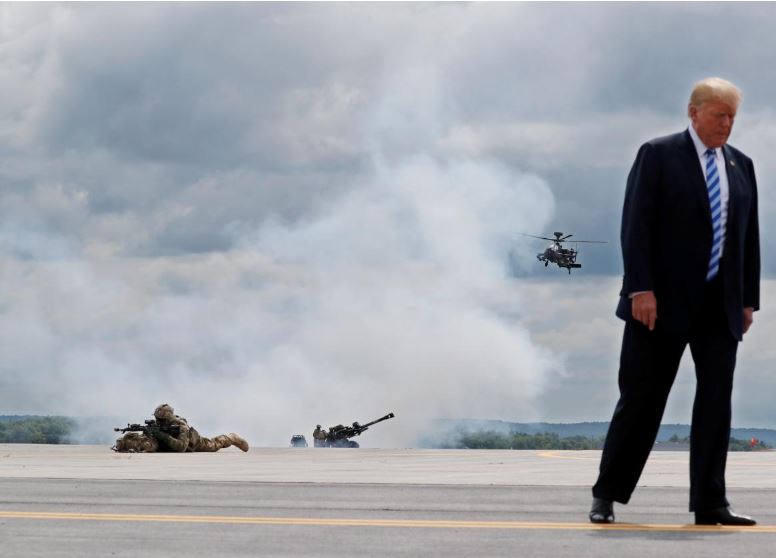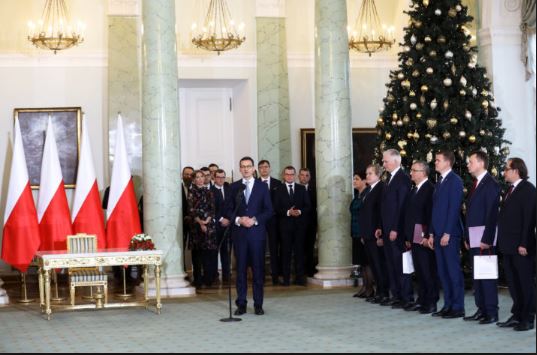U.S. President Donald Trump signed a $716 billion defense policy bill on Monday that authorizes military spending and includes watered-down controls on U.S. government contracts with China’s ZTE Corp and Huawei Technologies Co Ltd [HWT.UL].
Trump signed the law at the U.S. Army’s Fort Drum base in upstate New York on his way back to Washington after a 12-day working vacation at his golf club in New Jersey. The bill was named for one of Trump’s political critics, the ailing U.S. Senator John McCain of Arizona, but he did not mention McCain’s name.
Trump later made a reference to McCain at a political fundraiser in Utica, New York, knocking him – as Trump does repeatedly – for voting against a bill to repeal parts of President Barack Obama’s signature healthcare reform law last year.
Even though Trump said the bill “is the most significant investment in our military and our war-fighters in modern history,” Obama’s first three defense budgets were larger, when adjusted for inflation, according to Todd Harrison at the Washington-based Center for Strategic and International Studies.
Some lawmakers wanted to use the bill to reinstate tough sanctions on ZTE to punish the company for illegally shipping products to Iran and North Korea, but the restrictions included in the final National Defense Authorization Act, or NDAA, that passed Congress were weaker than earlier versions of the bill.
Trump has lifted an earlier ban on U.S. companies selling to ZTE, allowing China’s second-largest telecommunications equipment maker to resume business and putting him at odds with both Republican and Democratic lawmakers.
Leaders of U.S. intelligence agencies have said they are concerned that ZTE, Huawei Technologies Co Ltd and some other Chinese companies are beholden to the Chinese government or Communist Party, raising the risk of espionage.





